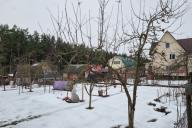A yellowed and sickly thuja cannot be considered a worthy decoration for a garden.
You want to either cure such a tree or dig it up and plant a new plant that will not disappoint.
Thuja is an unpretentious plant. But some nuances of care must be taken into account so that the tree turns into a luxurious decoration of the garden.
Soil
Light and moist soil is the best option for planting seedlings. On heavy clay and dry soil, the thuja dries out and turns yellow.
The factor of unfavorable neighborhood also plays a role. Gardeners do not recommend planting the plant next to massive fruit and other trees. Otherwise, the roots of the "old-timers" will take away nutrients from the seedling.

Nutrient mixture for the planting hole:
- 2 parts leaf or 2 parts turf soil;
- 1 part sand;
- 1 part peat;
- 50-100 g of nitroammophoska.
The first 3 years
This is the most important period. The first three years, the thuja requires a lot of attention:
- watering;
- weed removal;
- loosening the soil;
- insulation before the cold weather;
- pruning.
Thickening often leads to the emergence of diseases. Dry and diseased branches do not decorate the tree, but interfere with the free circulation of air.
Top dressing
Only in the fourth year do they add fertilizer. This is done in early spring.
The plant is fertilized with mineral fertilizers, for example, urea or ammonium nitrate - 30 g per 1 sq. m. The granules are embedded in the soil and then watered abundantly.








